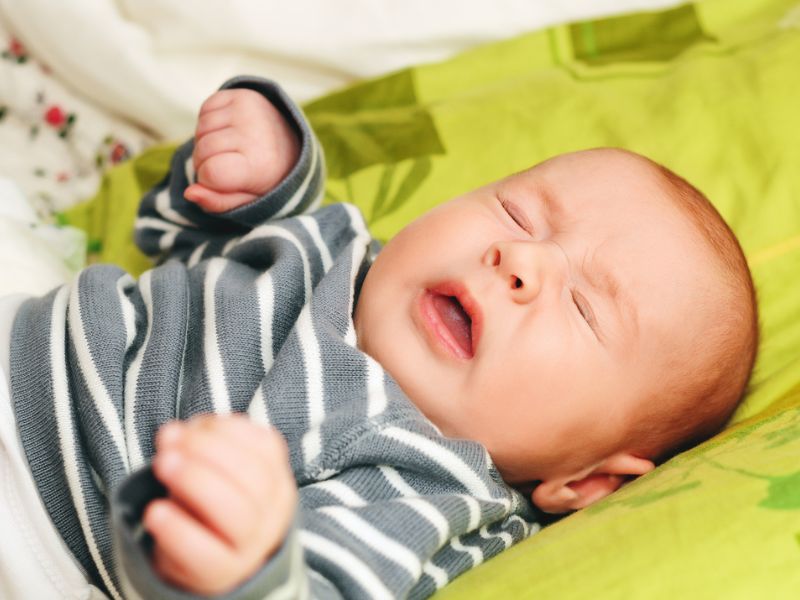If you recently welcomed a newborn into your family, you may have noticed that they sneeze frequently. While this can be concerning for new parents, rest assured that it’s perfectly normal for newborn babies to sneeze a lot. Sneezing is common in the early weeks and months of a baby’s life. Here are a few reasons why your newborn baby might sneeze a lot:
Clearing Nasal Passages
Sneezing is the body’s natural way of clearing the nasal passages. During their time in the womb, babies are surrounded by amniotic fluid, which serves as their source of oxygen. However, once they are born, they undergo a crucial transition and must adapt to breathing air instead. Sneezing helps to expel any excess fluid, mucus, or debris from their nasal passages, allowing them to breathe more comfortably.

Image Credit: Shutterstock/Anna Nahabed
Sensitivity To The Environment
Newborns have susceptible respiratory systems. Their nasal passages are delicate and easily irritated by environmental factors such as dust, pollen, pet dander, or strong odors. Sneezing helps to remove these irritants from their noses, keeping their airways clear.
Hormonal Changes
During pregnancy, the mother’s hormones pass through the placenta to the baby. After birth, the sudden withdrawal of these hormones can cause nasal congestion in newborns. Sneezing is a way for their bodies to alleviate congestion and restore normal breathing.

Image Credit: Shutterstock/Dusan Petkovic
Adapting To Breastfeeding
When a baby feeds, they may inhale small amounts of milk into their nasal passages. It can cause irritation and trigger sneezing as the body tries to expel the milk. Sneezing during breastfeeding is a common reflex and usually subsides as the baby becomes more skilled at feeding.
Immature Immune System
Newborn babies develop immune systems, making them more susceptible to minor infections like the common cold. Sneezing can be a sign of the body’s defense mechanism at work, helping to eliminate germs or viruses from the respiratory system.